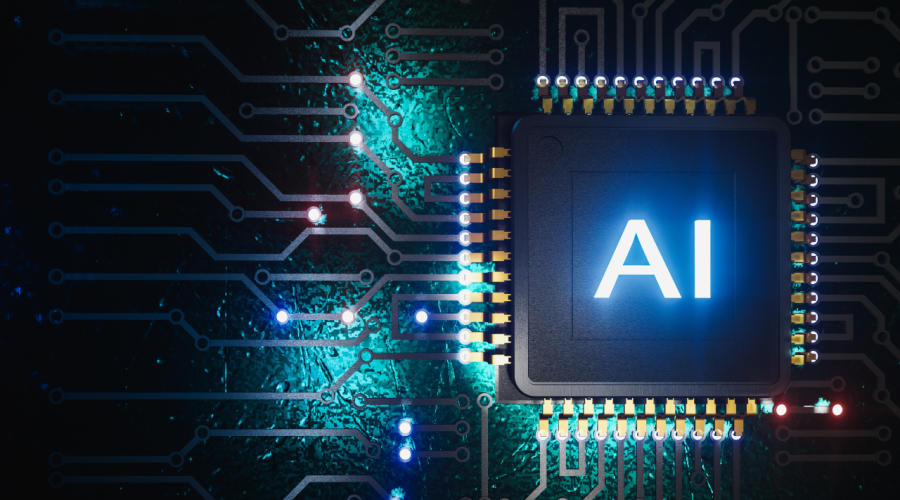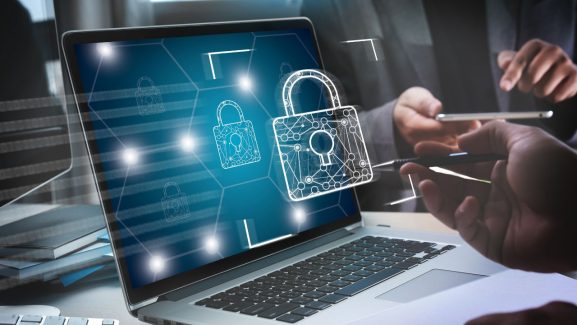This is Why Every AI Model Needs a Security Analyst to Stay Secure and Fair
As artificial intelligence (AI) continues to evolve and integrate into various industries, ensuring its security and reliability has become a critical task. A security analyst plays a key role in maintaining the integrity, fairness, and safety of AI models. Whether AI is used in healthcare, finance, cybersecurity, or customer service, the risks of biases, security breaches, and ethical concerns remain high. Therefore, the security analyst must ensure that AI models are free from vulnerabilities and operate as intended without manipulation or biases.
A security analyst is responsible for detecting, mitigating, and preventing threats that could compromise AI models. These professionals assess AI systems for potential security loopholes and implement necessary measures to safeguard their integrity. Their role includes monitoring AI training data, protecting against adversarial attacks, and ensuring compliance with security standards. In this article, we will explore the responsibilities of a security analyst, the challenges they face, and the best practices for ensuring AI model security.
Understanding the Role of a Security Analyst in AI
A security analyst in AI is tasked with ensuring that AI models function as intended without unauthorized alterations or biases. The responsibilities of a security analyst include:
- Threat Detection and Mitigation: Identifying and addressing vulnerabilities that could compromise AI security.
- Ensuring Data Privacy: Protecting sensitive data used in AI training to prevent leaks and unauthorized access.
- Monitoring AI Fairness: Detecting and eliminating biases that could lead to unfair decision-making.
- Securing AI Deployments: Implementing security measures that prevent cyber threats from affecting AI models.
- Regulatory Compliance: Ensuring AI models adhere to legal and ethical standards.
Without a security analyst, AI models may become vulnerable to manipulation, leading to biased results, security risks, and potential misuse. The security analyst must constantly monitor and update security protocols to prevent threats.
Ensuring the Integrity of AI Models
Integrity in AI models refers to the assurance that the system performs its tasks correctly and remains unaltered by unauthorized actions. A security analyst ensures integrity by:

- Regular Security Audits: Conducting frequent evaluations to check for vulnerabilities.
- Data Validation Techniques: Ensuring that training data is free from corruption and manipulation.
- Access Control Mechanisms: Restricting access to AI models and databases to prevent unauthorized changes.
- Tamper Detection Mechanisms: Implementing security protocols that flag suspicious modifications.
By ensuring the integrity of AI models, a security analyst helps prevent malicious actors from altering the data or algorithms, which could compromise AI’s performance and trustworthiness.
Promoting Fairness in AI Systems
Fairness in AI models is critical to preventing biases that could lead to discrimination or unethical decision-making. AI models learn from data, and if the data contains biases, the model may make unfair decisions. A security analyst ensures fairness by:
- Bias Detection and Correction: Identifying biases in training data and modifying the dataset to promote fairness.
- Algorithm Auditing: Reviewing AI algorithms to detect and eliminate biased decision-making.
- Diversity in Training Data: Ensuring that AI models are trained on diverse datasets to prevent discrimination.
- Testing and Validation: Running test scenarios to check for biased outcomes before AI deployment.
Without the intervention of a security analyst, AI models could unintentionally reinforce societal biases, leading to unethical results.
Ensuring AI Safety and Security
The safety of AI models is a top priority, especially in high-stakes applications such as healthcare, finance, and autonomous vehicles. A security analyst ensures safety by:
- Preventing Adversarial Attacks: Adversarial attacks occur when attackers manipulate input data to deceive AI models. A security analyst develops countermeasures to prevent such attacks.
- Data Protection: AI models rely on vast amounts of data, making data security essential. A security analyst ensures that data is encrypted and protected from cyber threats.
- Compliance with Safety Regulations: AI models must comply with security laws and industry regulations. A security analyst ensures adherence to these standards.
- Monitoring and Response Plans: Implementing real-time monitoring systems and rapid response strategies in case of security breaches.
AI security threats are continuously evolving, making it crucial for a security analyst to stay updated on emerging threats and best security practices.
Challenges Faced by Security Analysts in AI
A security analyst encounters several challenges while securing AI models, including:
- Data Vulnerabilities: Ensuring that AI training data remains accurate and unbiased is a significant challenge. Corrupted data can lead to incorrect AI decisions.
- Complexity of AI Models: AI systems are highly complex, making it difficult to detect security vulnerabilities.
- Evolving Cyber Threats: As AI technology advances, so do the techniques used by cybercriminals to exploit vulnerabilities.
- Ethical Considerations: Maintaining ethical AI usage while ensuring security is a delicate balance.
- Compliance Issues: Adhering to various legal and industry regulations requires continuous monitoring and adaptation.
Despite these challenges, a security analyst plays a crucial role in maintaining AI model integrity, fairness, and safety.
Best Practices for Security Analysts in AI Security
To effectively secure AI models, a security analyst should follow these best practices:
- Regular Security Audits: Conduct frequent security assessments to identify vulnerabilities early.
- Data Protection Measures: Encrypt and secure AI training data to prevent unauthorized access.
- Bias Monitoring and Correction: Continuously monitor AI systems for biases and take corrective actions.
- Collaboration with AI Developers: Work closely with AI developers to implement security measures at every stage of AI development.
- Ongoing Education and Training: Stay updated on the latest AI security trends and emerging threats.
- Incident Response Planning: Develop response strategies for handling AI security breaches.
- Automated Threat Detection: Use AI-driven security tools to identify and mitigate threats in real-time.
By following these best practices, a security analyst can significantly reduce security risks and enhance AI reliability.
Future of AI Security and the Role of Security Analysts
As AI continues to grow, the need for security analysts will increase. The future of AI security will involve:
- AI-Powered Security Solutions: AI-driven cybersecurity tools will help automate threat detection and response.
- Advanced Adversarial Defenses: Enhanced techniques to prevent adversarial attacks on AI models.
- Stronger AI Regulations: Governments and organizations will introduce stricter AI security laws, increasing the need for compliance-focused security analysts.
- Ethical AI Development: AI security will involve ensuring AI operates ethically and transparently.
- Collaboration Between AI Experts and Security Analysts: The fusion of AI expertise and cybersecurity knowledge will be vital for future AI security measures.
The security analyst will remain at the forefront of AI security, ensuring AI models continue to operate safely, fairly, and reliably.
The role of a security analyst in AI security is crucial for protecting AI models from biases, adversarial attacks, and unauthorized alterations. By ensuring integrity, fairness, and safety, security analysts help AI function as intended and maintain public trust. As AI technology continues to evolve, the importance of a security analyst will only grow, making their work essential in the digital age. Organizations must invest in skilled security analysts to safeguard their AI systems and ensure ethical AI deployment.
By understanding the responsibilities and challenges of a security analyst, businesses can enhance AI security and create more reliable and trustworthy AI models.



